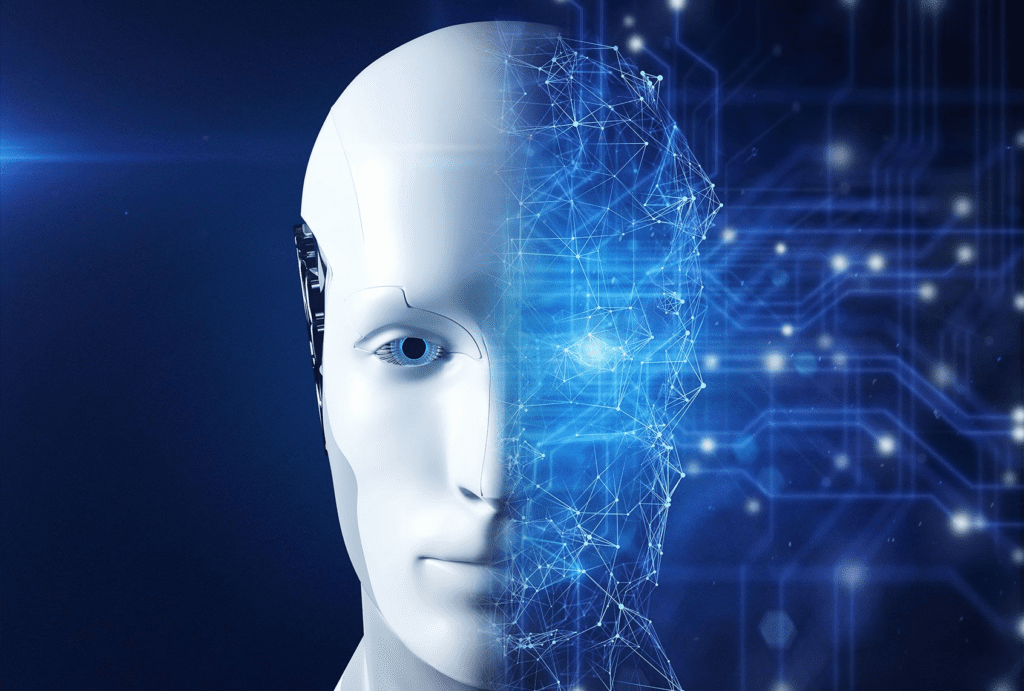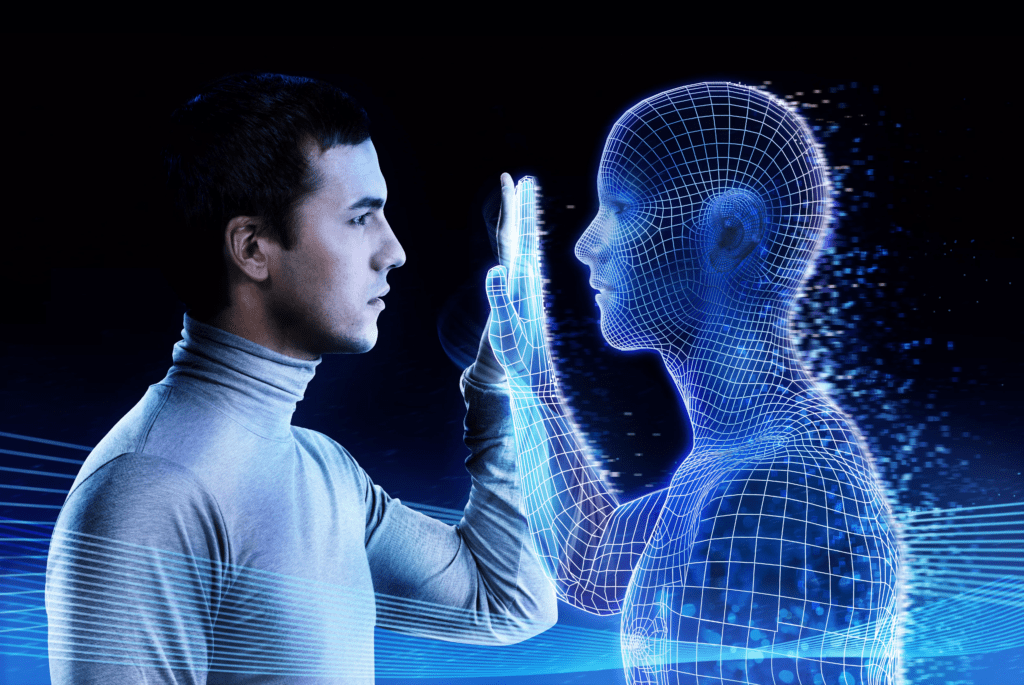AI is no longer just a concept for the future; it now plays a crucial role in modern technology, impacting various industries, economies, and our everyday routines. As artificial intelligence advances, it holds the potential to create significant transformations, influencing the future in thrilling and demanding ways. This article delves into the future of artificial intelligence, assessing its possibilities, the obstacles it poses, and how it affects different industries.

Introduction to AI
AI pertains to the creation of computer systems that can carry out activities that usually demand human intelligence, like learning, reasoning, problem-solving, comprehending natural language, and identifying patterns. In recent years, AI has evolved from a specialized field of study to a widely used technology with practical uses in various sectors.
The Current State of AI
Currently, AI can be found everywhere in technologies like voice assistants (e.g., Siri, Alexa), recommendation systems (e.g., Netflix, Amazon), and autonomous vehicles. Machine learning, which is a part of AI, has been instrumental in driving a lot of this advancement by allowing systems to enhance their capabilities as they encounter more data.
Even with these progressions, AI is still in its infancy. The majority of AI systems currently are specialized in carrying out specific tasks, which characterizes them as narrow AI. Still, creating general AI that can complete any mental task a human can is a challenge for the future of AI research.
The Future of AI: Key Trends and Developments
AI and Automation
Effect on Jobs: One of the most talked about areas of AI’s future is how it will affect employment. Automation driven by artificial intelligence is predicted to take over specific roles, especially ones that require doing the same tasks repeatedly. Nonetheless, it will also generate fresh prospects within areas like AI upkeep, data examination, and AI morality. The difficulty lies in overseeing the transition and guaranteeing that employees receive training for different positions.
AI will transform manufacturing through smart factories that utilize AI-powered robots and predictive analytics to enhance productivity and minimize downtime. The growth of artificial intelligence in the manufacturing industry will result in higher productivity while also necessitating substantial changes in employee abilities.

AI in Healthcare
AI will have a vital role in personalized medicine by examining genetic data and forecasting how individuals will react to certain treatments. This has the potential to result in improved treatments customized for each patient.
AI will play a crucial part in personalized healthcare by analyzing genetic information and predicting how individuals will respond to specific therapies. This could lead to enhanced therapies tailored to individual patients.
AI is being used by the pharmaceutical industry to speed up the process of discovering new drugs. Through the examination of extensive datasets, artificial intelligence has the capability to swiftly pinpoint potential drug options compared to conventional approaches, ultimately accelerating the creation of new treatments.
AI in Education
Personalized Education: AI will allow tailored learning experiences by adjusting educational material to suit each student’s needs. Platforms powered by artificial intelligence have the ability to evaluate a student’s strengths and weaknesses and offer personalized learning paths, which could enhance educational results.
AI tutors: Increasingly common AI-powered tutors and educational aides will provide students with additional assistance beyond the traditional classroom setting. These tools offer immediate feedback and support students in mastering challenging ideas.
Considerations regarding ethics: With the increasing integration of AI in education, ethical issues will emerge, including the need to prevent AI from perpetuating biases and to protect data privacy.
AI and the Environment
Ethical concerns will emerge as AI becomes more ingrained in education, including the need to prevent AI from strengthening biases and to uphold data privacy.
AI has the capability to have a strong impact on addressing climate change. As an illustration, AI has the ability to enhance energy utilization in buildings, forecast natural calamities, and enhance the efficacy of renewable energy sources. AI-based models can assist in comprehending and reducing the consequences of climate change.
AI can improve sustainable farming practices by maximizing resource utilization, forecasting crop production, and identifying pests and diseases in advance. These developments may result in farming practices that are both more effective and better for the environment.
Biodiversity preservation: AI can assist in protecting biodiversity by using data from sensors, satellites, and drones to observe wildlife populations and habitats. This data can aid in safeguarding endangered species and improving the management of ecosystems.
Ethical and Social Implications of AI
Bias and Equity: A main worry regarding AI is the chance of bias influencing decision-making. AI systems have the potential to continue and reinforce biases present in the data they use during training, resulting in unjust results. As AI advances, it is crucial to address the important challenge of ensuring fairness and transparency in its development.
Privacy Issues: With the increasing integration of AI systems into our daily routines, there is a growing concern over the collection and analysis of large quantities of personal information. This gives rise to important privacy issues, especially relating to the utilization and distribution of data. Finding equilibrium between AI advantages and safeguarding personal privacy will be crucial.
AI Governance: With the increasing strength of AI, there is a rising demand for efficient governance structures to guarantee responsible development and use of AI. This involves creating rules and guidelines to stop abuse and guarantee that AI helps all of society

AI and Creativity
AI is currently utilized in producing music, artwork, and literature within the realm of the arts. AI may someday work alongside artists to help them delve into fresh concepts and challenge the limits of conventional art forms.
AI-Generated Content will become more prevalent, including news articles and marketing copy. Although this has the potential to increase productivity in generating content, it also sparks concerns regarding the genuineness and importance of human innovation.
Collaboration between humans and machines may be the key to the future of AI in creativity. AI can inspire, brainstorm, and automate tasks, freeing up human creators to concentrate on the deeper and more significant parts of the creative procedure.
FAQ
Q1: Will AI take over all jobs in the future?
A1: Although AI and automation will take over some roles that require repetitive duties, they will also bring about fresh possibilities in fields like AI upkeep, data interpretation, and AI moral principles. Successfully guiding the transition and providing workers with training for their new positions will be crucial.
Q2: How will AI impact privacy?
A2: With the increasing integration of AI systems into our daily routines, there will be a heightened level of personal data collection and analysis, resulting in notable privacy issues. Achieving a balance between harnessing the advantages of AI and safeguarding personal privacy will necessitate strong governance and regulatory structures.
Q4: How will AI change healthcare?
A3: AI will completely change the healthcare industry by allowing for customized medical treatments, enhancing the accuracy of medical imaging and diagnosis, and speeding up the process of discovering new drugs. These developments will result in more successful therapies and improved outcomes for patients.
Conclusion
The potential of AI in the future is vast and has the power to revolutionize our world beyond our current understanding. AI will lead the way in innovation, transforming industries and tackling worldwide issues such as climate change and healthcare. Nevertheless, as artificial intelligence progresses, it will bring about notable ethical, social, and economic obstacles. It will be crucial to shape a future where AI benefits all of humanity by developing and using it responsibly, with a focus on fairness, transparency, and protecting human rights.


